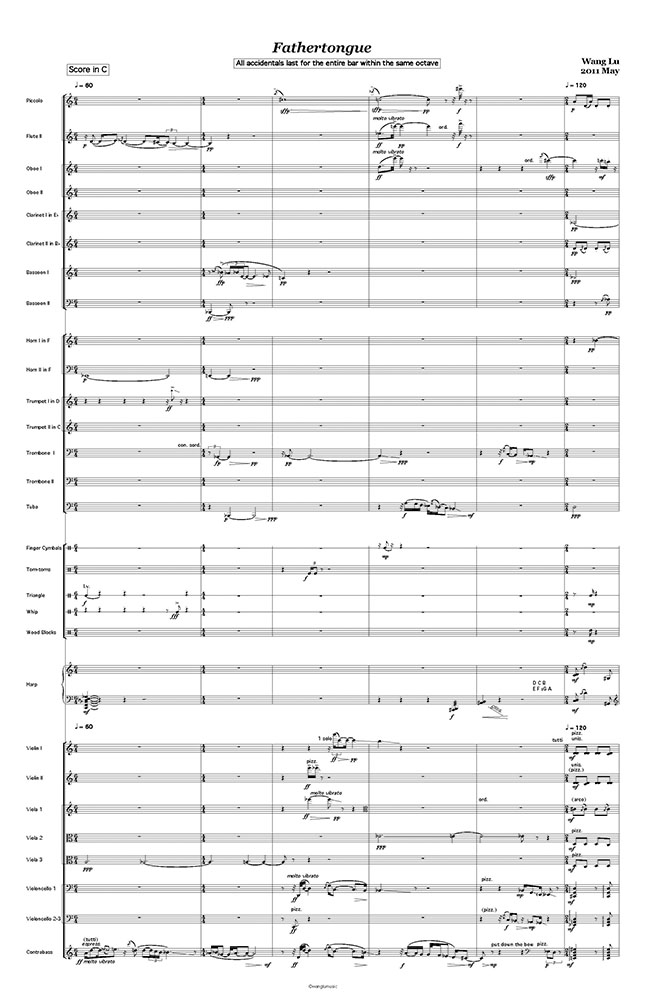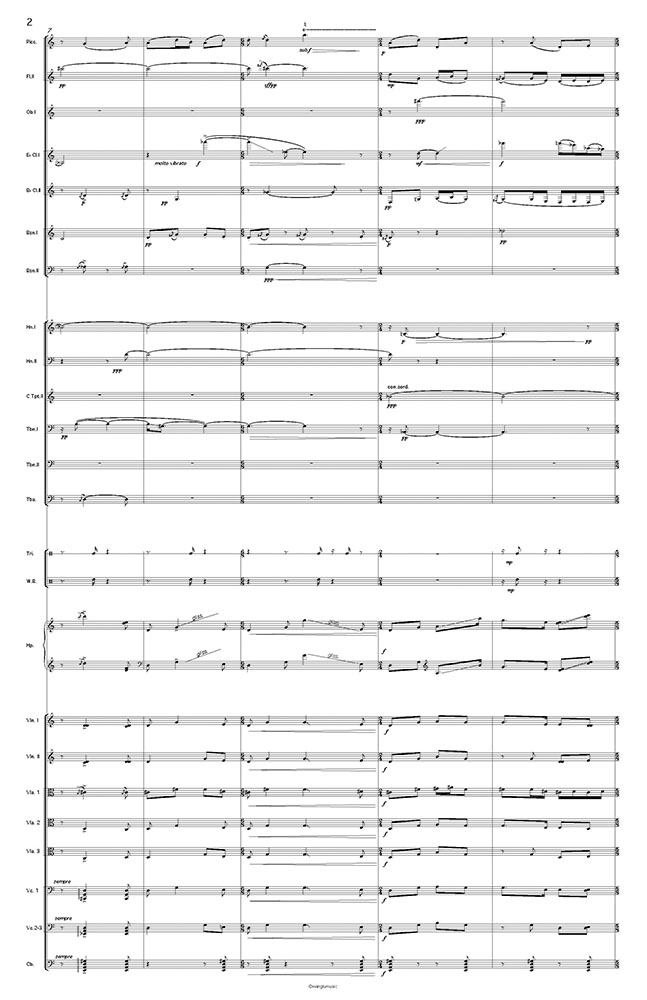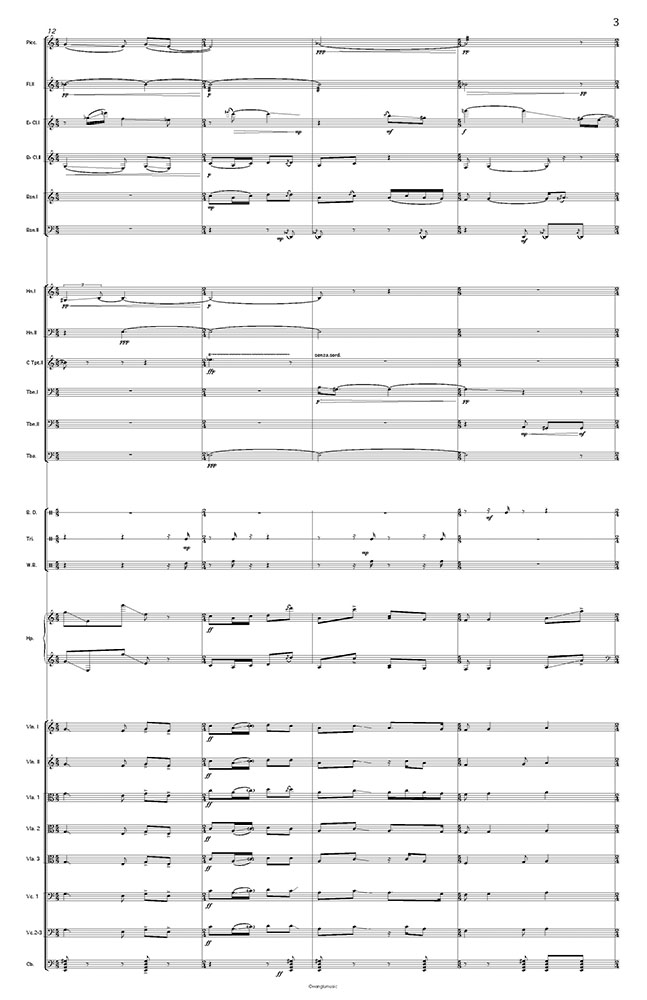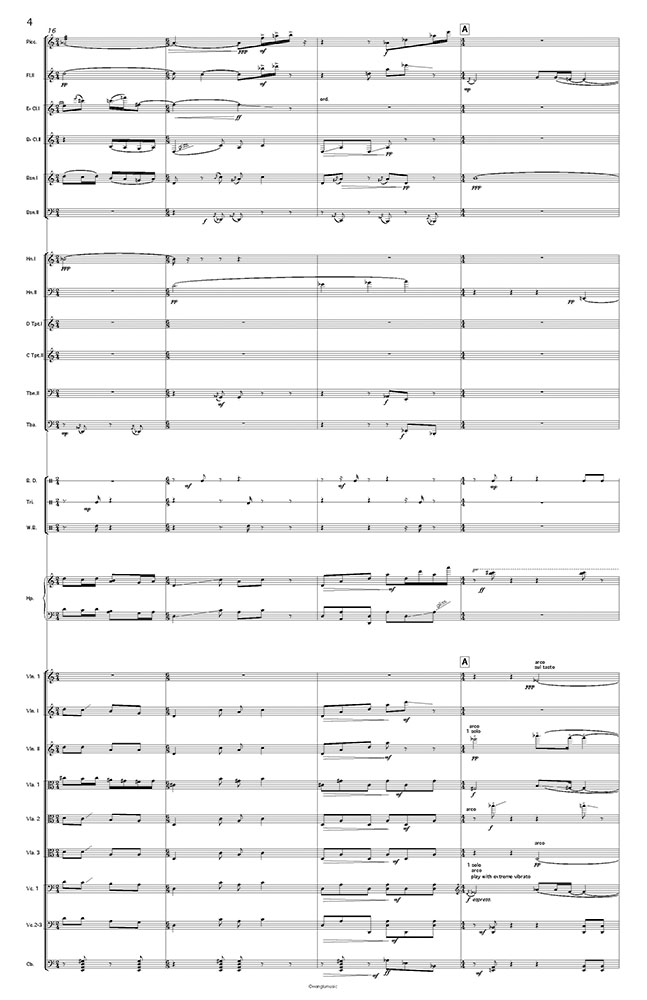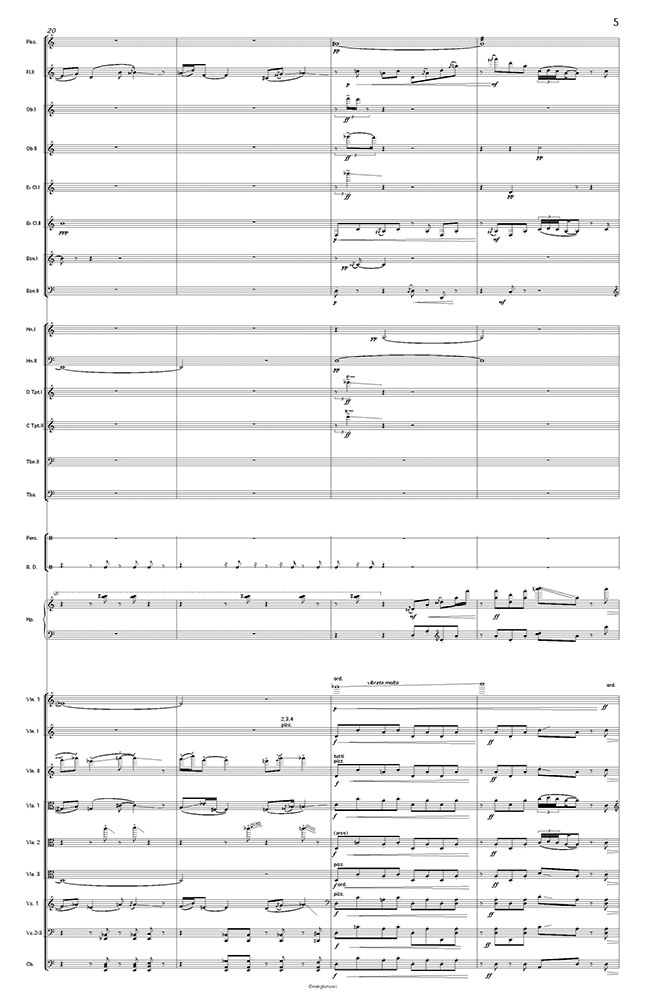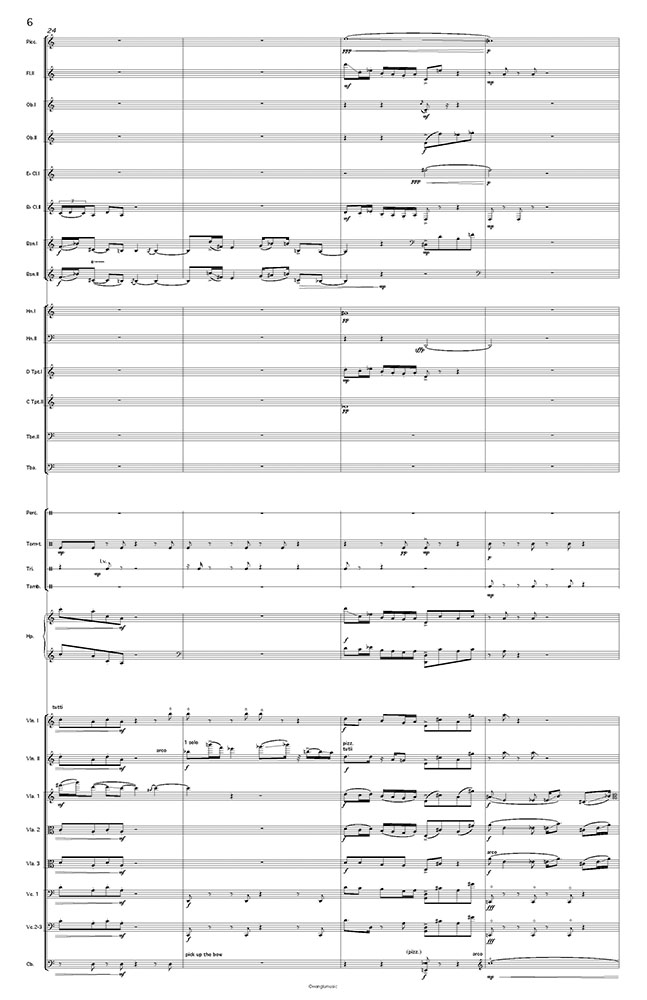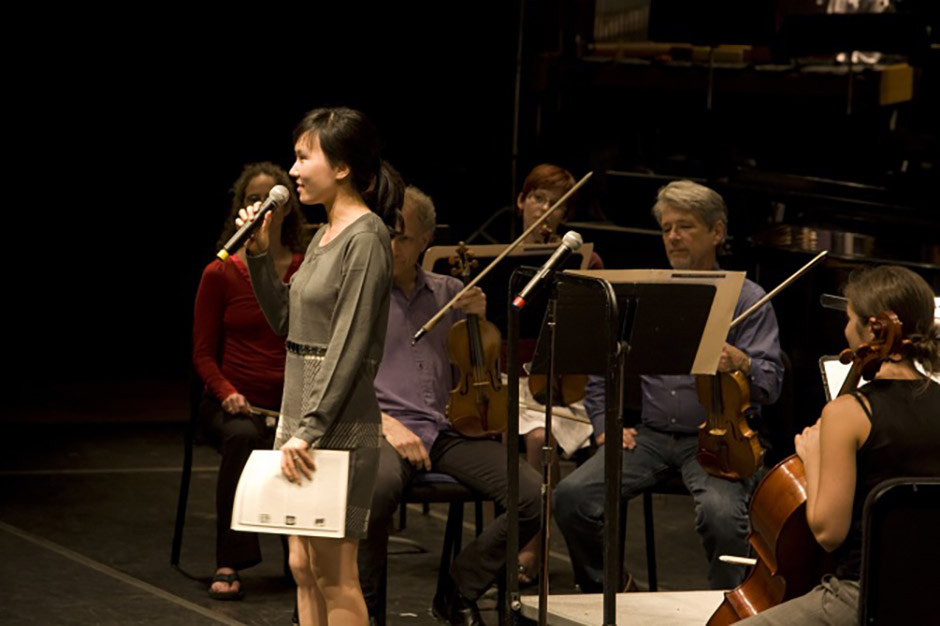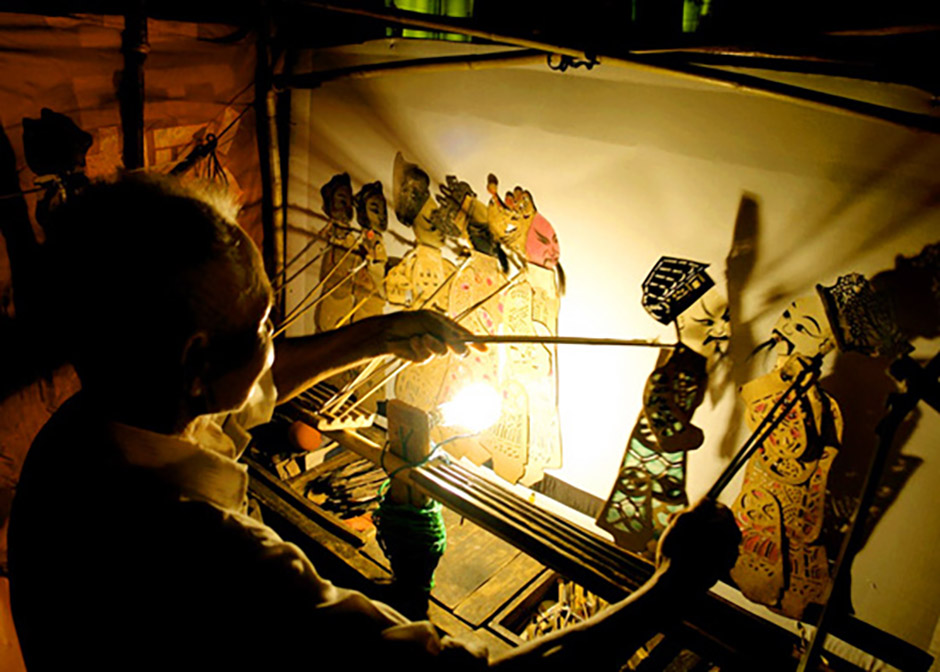Fathertongue
for orchestra
(2011)
- Duration 6'
- Instrumentation piccolo, flute, 2 oboes, clarinet in Eb, clarinet in Bb, 2 bassoons, 2 horns, 2 trumpet, 2 trombones, tuba, 2 percussionists, harp, strings: violin I (4 players), violin II (4 players), viola (3 players), cello (3 players), double bass (2 players)
- Premiere Premiered at the Cabrillo Music Festival on Aug. 4, 2011, at Santa Cruz Civic Auditorium, Santa Cruz, California.
Excerpt from the premiere
Program Notes
Under a scorching sun, peasants carry their heavy loads while the coarseness of a rope cuts deeply into their skin. By the drying riverbank, their heavy steps move arduously in uniform resistance. Their leader shouts out a call, and they all cry out to respond. In rhythm with their cries, they push the boat forward as if pushing along the pain of difficult labor, day by day. This was the origin of Lao Qiang, which from the very beginning was never a joyful, beautiful music made for pleasurable listening.
Originating in Northwest China, Lao Qiang (the “old song”) was sung by all men under such conditions, and later became the primogenitor of Qin opera and Beijing opera. Characteristics include vigorous, forceful shouting, dashing tempi, the striking of sharp wood and metal percussion, and stories of war and heroism, all mixed with improvised high brass and laughter. Lao Qiang, with its unique and harsh timbres and a bittersweet musical message, always struck me as possessing a rare and vivid expressivity and freshness, despite its antiquity.
With the intention of expressing my admiration for the raw, unadorned music making of these peasant workers, who with their sweat, tears, and laughter, made this powerful music throughout their lives, I wrote Fathertongue as a short interlude for orchestra with a dash of my own irreverence and humor, by which their lives could perhaps be sweetened.
– Wang Lu
